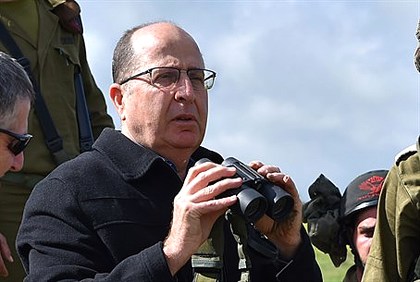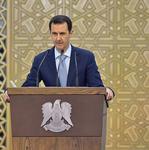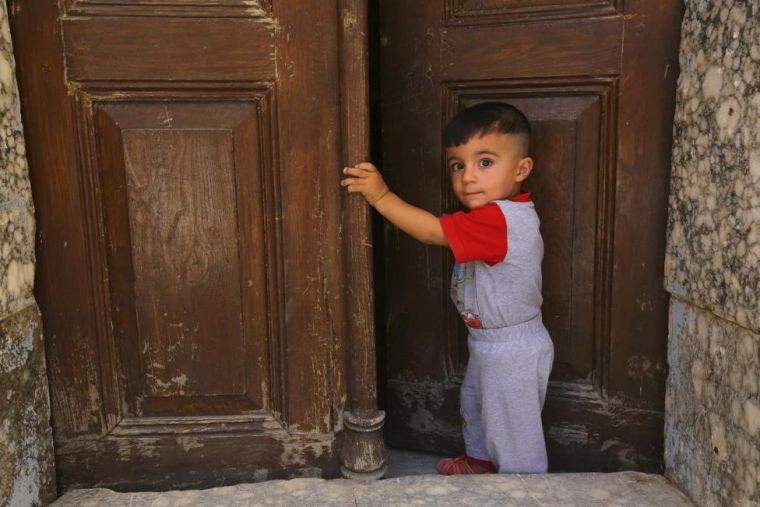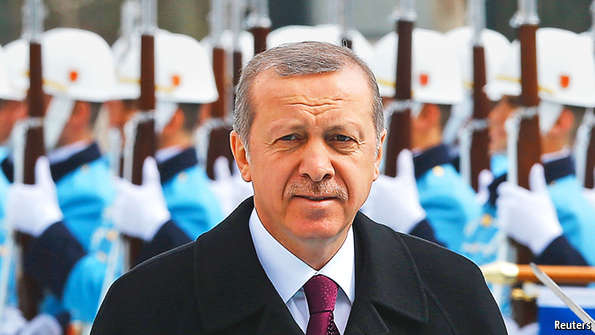Christians in Middle East facing worst persecution as population drops sharply
Monica Cantilero 26 July 2015
Email Print
More Sharing ServicesShare

Reuters
An Iraqi Christian boy fleeing the violence in Mosul stands inside the Church of the Sacred Heart of Jesus Chaldean Church in Telkaif near Mosul, in the province of Nineveh, on July 20, 2014.
More Christians are facing religious persecution in the Middle East than at any time since early history, according to a recent study by the Pew Research Center.
This has resulted in a sharp decline of the Christian population in the region, according to the New York Times. In Iraq, only less than half a million Christians are left since many have already left after being targeted by extremists for more than a decade, a Times report said.
The problem turned from bad to worse with the rise of the Islamic State as it intensified the Muslim persecution of Christians and other minorities as part of its campaign of terror in the region, the report said.
Now, "Christianity is under an existential threat," said Anna Eshoo, a California Democrat in the US House of Representatives and an advocate of Eastern Christians.
In Syria, President Bashar Assad has allowed Christians to leave the country since the civil war broke out in 2011.
Nearly a third of Syria's estimated 600,000 Christians have fled, having been driven out by terrorist groups like the Nusra Front and now ISIS, the Times said.
Assad has used the ISIS rise to solidify his own support among those who remain, contending that he is the only thing stopping the group from taking over Syria, according to the report.
"When Christians saw Christians being beheaded, those who saw Assad as the enemy chose the lesser of two evils," Samy Gemayel, leader of the Kataeb party in Lebanon, told the Times.
The number of Christians in the Middle East—in countries like Egypt, Israel, Palestine, and Jordan—has dropped to roughly 4 percent of their respective population from a high of 14 percent, according to the Guardian.
The British publication pointed out that the persecution of Christians started not with ISIS, but 10 years ago after the US- and British-led invasion of Iraq.
Prior to the invasion, "under Saddam Hussein's rule, Christians in fact enjoyed what they now recall as a golden age. They were free to worship and played a full role in society. However, the removal of the dictator let loose an ugly Shia-Sunni power struggle," The Guardian said.
ISIS is justifying its persecution of Christians and other minorities through its own twisted version of the early history of Christians in the Middle East, the paper said.
Recently posted videos by the group claim Christians are second-class citizens in the caliphate who have to pay the "jizya" tax or convert. Those who refuse would be killed, the narrator warned, as footages of the persecution of Egyptian and Ethiopian Christians in Libya are shown.
The embattled Christians and other minorities are now looking up to US and other Western countries to save them from annihilation.
"How much longer can we flee before we and other minorities become a story in a history book?" said Nuri Kino, a journalist who founded the advocacy group Demand for Action.
The group said the beleaguered Christians and minorities need urgent support from the West.
This sentiment was expressed after the UN Security Council met this spring to discuss the situation of religious minorities in Iraq. Following the meeting, the UN High Commissioner for Human Rights and other activists expressed anger at the United States for its apparent indifference to the plight of minorities in Iraq and Syria.
"If we attend to minority rights only after the slaughter has begun, then we have already failed, said the High Commissioner for Human Rights, Zeid Ra'ad al-Hussein.
Since October 2013, the US has only provided $416 million in humanitarian aid, far from what is needed, he said.
"Americans and the West were telling us they came to bring democracy, freedom, and prosperity," said Louis Sako, the Chaldean Catholic Patriarch of Babylon who spoke before the Security Council, in an email. "What we are living is anarchy, war, death, and the plight of three million refugees."


















